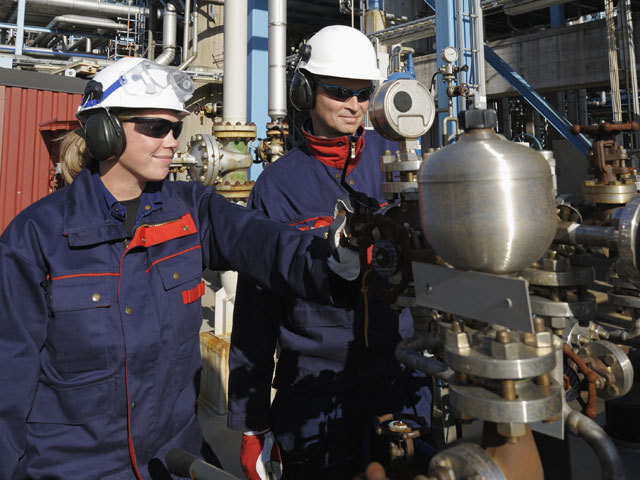
The UK’s upstream oil and gas industry is a huge employer – one of the biggest. The current estimate is that it supports around 450,000 jobs from Shetland to the English West Country.
It’s not just about oil and gas production platforms, rigs and the many highly specialised support ships and helicopters that provide the very necessary logistics support.
In fact, North Sea offshore jobs account for quite a small proportion of the 450,000.
Most are employed onshore by oil corporations like BP, big engineering contractors such as Amec, subsea specialists such as Subsea 7, multi-national oilfield service providers like Schlumberger and thousands of small to medium-sized firms of which several hundred are based in and around Europe’s oil and gas capital, Aberdeen.
In spite of its huge success, and high wages, the North Sea industry is struggling to attract fresh talent at almost every level.
Companies are crying out for new people as they strive to grow and frequently resort to stealing talent from one another.
There is nothing new or unusual about talent theft; the financial sector and many other industries are veterans of such practice. They don’t like spending on training.
What increasingly makes the North Sea industry stand out from the corporate herd in Britain is that it is making a serious effort to plug that gap through recruiting and training young people.
It is doing this through apprenticeships and out of universities and colleges. Company “academies” are springing up everywhere it seems, plus, in Scotland, the Oil and Gas Academy has been launched.
Put simply, it brings together various existing providers under a common banner. Six colleges and universities sit at its core.
It is said that Scotland’s energy industry alone – across all sectors – needs 95,000 more people between now and 2020.
Most of those will be accounted for by the North Sea, which some experts say could last for another 50 years. However, oil and gas industry people are often highly mobile and you can find Scots all over the globe, often working at the cutting edge, exploring for and developing new reserves.
Shockingly, only 9% of UK engineers are female, many of them in the oil and gas industry. There is serious need to attract many more young women into the sector across all the disciplines and skills, from skilled crafts and trades such as welders and electricians, through technicians and engineers of many kinds, geologists, drillers, environmental scientists and, of course, bosses.
Happily, many more school-age females are grabbing the opportunity of beating the boys in what was previously mostly their domain.
They are progressively breaking down the barriers of a traditionally chauvinistic sector.
The oil and industry is actually quite a flexible place to work; there are some great employment practices, where women can very much manage a career and a family.
Geology and environment are examples of professions that are proving popular among female applicants.
The trade body Oil & Gas UK has a PR initiative called Energising the Nation’s Future, whereby they are trying to communicate to people that UK oil and gas is critical.
The skills gap is not a figment of bosses’ imaginations. It is very real and recruiting young people is crucial to the future of this vital industry that, one way or another, reaches into all of our lives because we all need energy.
Recommended for you
